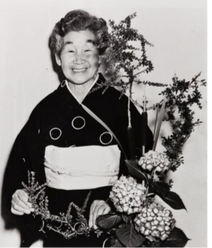 Elizabeth Alexander spent her early years in the Carolinas, “where my mom taught me to play the piano and my dad taught me the beauty of a well-told story”. She attended The College of Wooster, and later received her doctorate in music composition from Cornell University. While her many commissions have included works for orchestras, chamber ensembles, and solo voices, she is best known for her choral pieces which have been performed by thousands of choruses worldwide. She has received numerous grants, awards and fellowships during her career. Her acclaimed text settings of both original lyrics and the words of others prompted Choral Director Magazine to write that “her mastery of prosody and declamation results in a marriage between music and text that is dynamic and indelible. A special feature of Elizabeth’s website is the section titled “Composerly Thoughts” – a title that grew out of a conversation with her composition professor Steven Stucky at Cornell. Reading her postings are a wonderful way to glimpse her creative process – here’s the link! https://www.elizabethalexander.com/category/all/ Her current project is a music theater work entitled Split Hickory reflecting the past hundred years of folk, country and Americana music.  Mrs. Take Eto Mrs. Take Eto It is not possible to highlight just one woman from the Eto family, as it is a story of collective contribution with a strong commitment to culture, family, education and community. The story begins in 1908 when Take Yanagihara first stepped onto US soil and married family friend, Tameji Eto. The couple eventually settled in the Los Osos Valley where they worked side-by-side to create a successful farming business and raise eight children. Take was fiercely dedicated to her family and, like many immigrant parents, was prepared to make whatever sacrifices were necessary to put her children on a path to success. She worked in the fields, keeping her young children close by her side. She cooked for the farm staff, helped new arrivals settle into the community, and was active in the Buddhist church. Although there were laws that kept them from becoming citizens or owning land in California, the Eto family stayed focused on its dreams. Six of the children attended Sunnyside Elementary School in Los Osos. Daughters Kozy and Suzy studied music and performed recitals at the San Luis Obispo Conservatory of Music and Art. Daughter Toshiko graduated from the Stanford University nursing school. Four daughters attended Mills College in Oakland, including Grace, who achieved her life-long dream, and graduated at the age of 74. Their lives changed dramatically on December 7, 1941. As a community leader, father Tameji, was interned without charge and separated from the family for two years. Family members were forcibly removed from their homes, incarcerated, and exiled to other remote parts of the country. Toshiko volunteered to serve with the medical team at the Manzanar incarceration camp in the California Owens Valley. Her mother, brother and his family, and two younger sisters later joined her there. Following the war, however, all rebuilt their lives, drawing upon the resilience and determination Take and Tameji exemplified. The family has been honored and documented in many ways. A remarkable children’s book, Music for Alice, by award-winning author and illustrator, Alan Say, has been written about Alice Eto Sumida and her husband. Toshiko’s son, Samuel Nakamura, published his mother’s memoirs titled Nurse of Manzanar. Susy Eto Bauman was featured in the documentary, Lives Well Lived, in which forty seniors share their philosophies on life. In her fascinating book, Bend with the Wind, Naomi Shibata describes the life and family of her mother, Grace Eto Shibata. The entire Eto family was also honored in the dedication of Eto Park, 170 Brook Street (once named Eto Street) in San Luis Obispo. |
Look & LIsten |
Join Us |
|

 RSS Feed
RSS Feed
